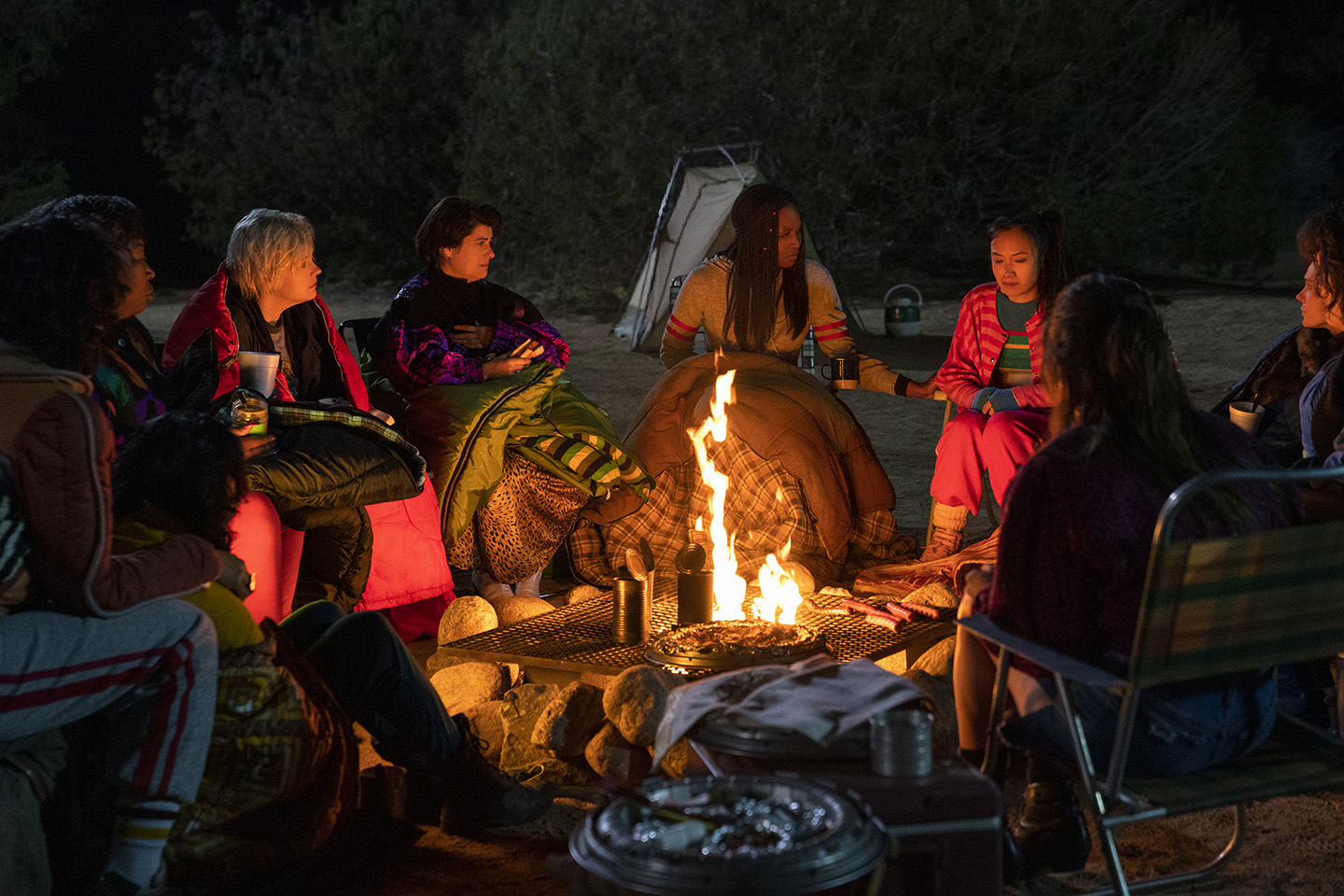‘Glow’ Finally Gives Its Characters Space to Grapple With Racism

Credit to Author: Alex Zaragoza| Date: Tue, 13 Aug 2019 17:33:10 +0000
The gorgeous ladies of wrestling from Netflix’s 80s-set series Glow have struggled with Big Life Questions (Who am I? What is my purpose?) since season 1. In between body slams and pile drivers, they’ve worked to find themselves and their place in the world. Season 3, which premiered on August 9, explores how trauma and being from a marginalized group shapes those answers.
Season 3 takes GLOW, the wrestling show within the series, to Las Vegas, where its campiness and kookiness fits in perfectly. The luxurious, Asian-themed Fan-Tan Hotel and Casino, run by hot former showgirl Sandy Devereaux St. Clair (played by the ageless Geena Davis), is their new home for a three-month residency. There, they perform an extravagant nightly show for the buffet-fed masses, doling out the same camel clutches and one-liners each night and following them up with partying into the wee hours of the morning. In between, each character wrestles internally with finding their place amid the chaos. Ruth (Alison Brie) struggles with feeling like a failure as Sheila (Gayle Rankin) proves herself a gifted actress and Sam (Marc Maron) and Justine (Britt Baron) set off to make a studio movie; Sheila strips herself of the wolf persona that’s been holding her back from achieving her truest form; Debbie (Betty Gilpin) struggles to balance motherhood and a producing career she wants to grow; and Bash (Chris Lowell) grapples with his sexuality after a threesome with Rhonda (Kate Nash) and a gigolo, as does Arthie (Sunita Mani), who feels discomfort in labeling herself gay despite being in a relationship with Yolanda (Shakira Barrera). But it’s through the instances of racial stereotyping and exotification that we see how deeply racism informs some characters’ sense of identity.
Since season 1, the wrestlers have expressed concern over their assigned personas—Fortune Cookie, Junkchain, Welfare Queen, and Beirut the Mad Bomber are all built on racial stereotypes. In season 2, this came to a head for Tammé (Kia Stevens), after her son watched her perform as Welfare Queen, forcing her (and viewers) to delve into the roles Black women have to take to find work in the entertainment industry, and the cost that comes with it. In season 3, Jenny (Ellen Wong) grapples with being a Chinese-Cambodian-American in a space that exploits her culture. She is forced to address that pain in the episode “Freaky Tuesday,” when her best friend Melrose performs a horrible Asian caricature while playing Fortune Cookie. In the following episode (“Outward Bound”), Jenny confronts Melrose, who doesn’t understand why her best friend is upset. “Every night I put on a kimono to jump out of a fortune cookie at an Asian-themed hotel surrounded by white geishas serving mai tais…it’s like I’m living in a nightmare,” she tells Melrose during an all-girls camping trip. “I was doing you doing a racist character!” Melrose exclaims. “But you’re white,” responds Jenny.
Jenny, like Tammé in season 1, finds herself wrestling with the notion that, to advance her livelihood, she’ll need to live with and maybe even perpetuate racism against her own people. But in addition to that, she’s also processing having to explain to Melrose the complicated nature of choosing to play a character you know is racist out of necessity, but also feeling protective of who should be allowed to enact that racism. It’s especially alienating for Jenny that Melrose, her ostensible best friend, is unable to see why she would be upset.
It’s not until Melrose leads a Passover where she boisterously describes Seder rituals through stories from her own life (handing out graham crackers in place of matzo and joking about why her family assigned her the role of the “wicked child”) that she is finally able to not just fathom the turmoil Jenny deals with, but also empathize. When Dawn and Stacey minimize the trauma and oppression Jews live with, Melrose tearfully opens up about about the family she lost in the Holocaust and how her dad refuses to live in a house without a basement or an attic “in case we have to hide again.” It’s then that Jenny tells the group how she and her family escaped Cambodia, and all those they lost, massacred in the Killing Fields. “I understand what it’s like to survive a genocide and not talk about it all the time,” she says. “I get to be one of the lucky ones,” she continues. “And now I’m jumping out of a fortune cookie every night pretending like everything is fine.”
In their shared (and buried) historical trauma, the best friends finally find common ground and healing. The show gives them the space to come to terms with how oppression and violence remain ingrained in people, haunting them in the decisions that allow their daily survival. For Melrose, it’s what opens her eyes to how deeply she hurt Jenny, and the bigger social and historical issues that cause that pain.
While the scene (and the season as a whole) has quite a few overly expository moments that border on heavy-handed (and perhaps unintentionally give Melrose a pass on the racism she perpetuated), it manages to avoid going fully After School Special by staying true to the characters’ humor. In discovering their own histories, they are able to inform their friends of the darker pieces that make them who they are: women whose existence is built on survival, and who have to make hard decisions to continue surviving.
Alex Zaragoza is the senior culture writer at VICE. Follow her on Twitter.
This article originally appeared on VICE US.